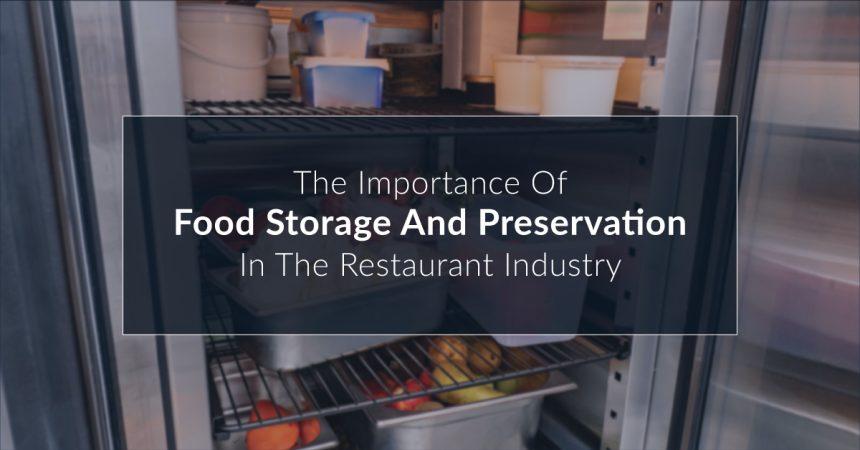Food storage and preservation are crucial elements in the restaurant industry. The proper storage and preservation of food can help to reduce waste, prevent spoilage and contamination, and ensure the safety and quality of the food served to customers. In this article, we will discuss the importance of food storage and preservation in the restaurant industry.
- Reducing Food Waste
Proper food storage and preservation can help to reduce food waste. This is because it allows restaurants to store and use food items efficiently, ensuring that they are not thrown away before their expiry date. By reducing food waste, restaurants can save money and reduce their environmental impact.
- Preventing Contamination
Food contamination can occur at any stage of food preparation or service. Proper food storage and preservation can help to prevent contamination by ensuring that the food is stored at the correct temperature, in the correct conditions, and for the correct amount of time. This can help to prevent the growth of bacteria and other microorganisms that can cause foodborne illness.
- Ensuring Quality
Proper food storage and preservation can help to ensure the quality of the food served to customers. This is because it can help to preserve the flavor, texture, and appearance of the food. By preserving the quality of the food, restaurants can provide a better dining experience for their customers.
- Meeting Food Safety Standards
Restaurants are required to comply with food safety standards set by local health authorities. Proper food storage and preservation is essential for meeting these standards. Failure to comply with food safety standards can result in penalties, legal action, and a damaged reputation.
- Maximizing Shelf Life
Proper food storage and preservation can help to maximize the shelf life of food items. This is because it can help to slow down the rate of spoilage and reduce the risk of contamination. By maximizing the shelf life of food items, restaurants can reduce the frequency of food orders and lower their operating costs.
In conclusion, food storage and preservation are critical elements in the restaurant industry. Proper storage and preservation can help to reduce food waste, prevent contamination, ensure quality, meet food safety standards, and maximize shelf life. By investing in proper food storage and preservation practices, restaurants can reduce their operating costs, provide a better dining experience for their customers, and improve their overall efficiency and profitability.



Leave a Reply